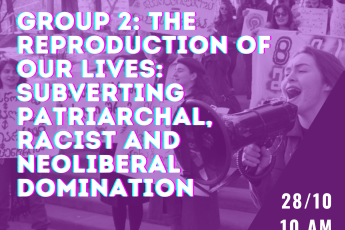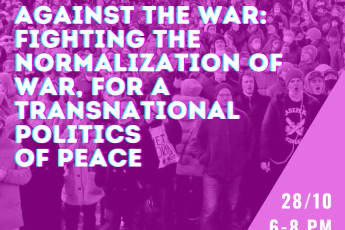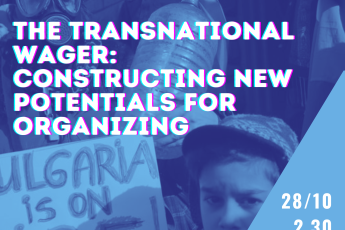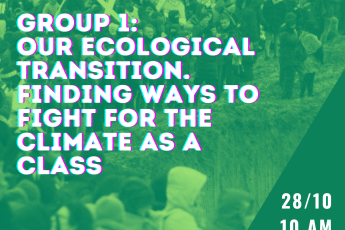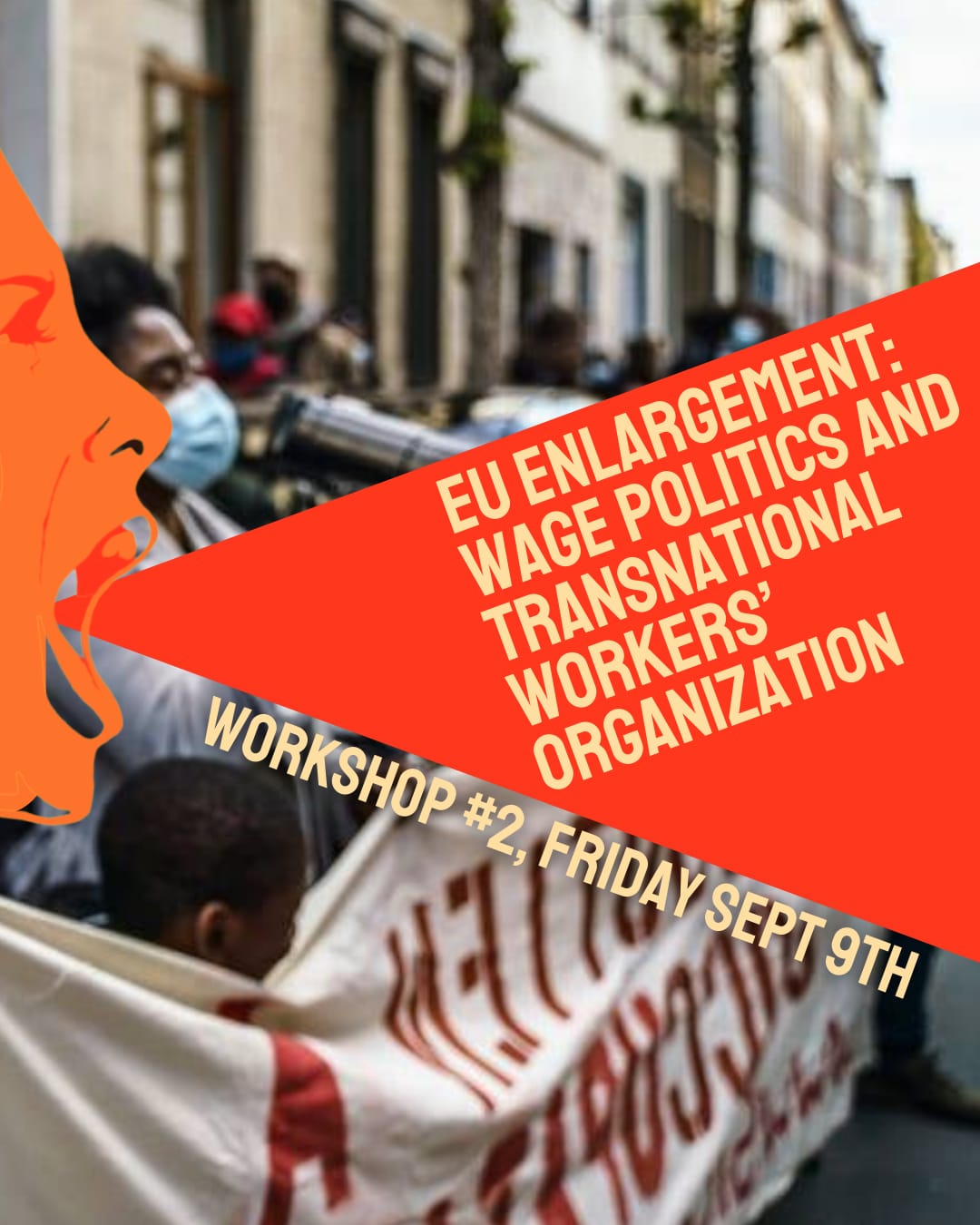
FRIDAY 9th September – 14:00-16:00
The workshop aims at discussing the possibility of transnational communication and organization of workers through and beyond the institutional borders of the EU, by considering both the process of EU enlargement and the wage and labor regulation policies introduced by the EU such as the minimum wage directive. Ever since the EU “Eastern” enlargement started, people in Central and Eastern European countries have hoped or even assumed that membership in the EU instantly guarantees economic and social success just by harmonizing laws and reforms with the EU directives. The effects of these juristical synchronisations have shown rather ambiguous results, while workers from these countries continue to be heavily exploited and mistreated both at home and within the borders of the EU when they migrate towards richer countries in the Union. Recently, membership in the EU is on the agenda again with Ukraine applying during the war and Moldova and Georgia following suit. The EU granted Moldova and Ukraine candidate status while deferring the candidacy of Georgia. At the same time when Georgia chartered a “Western” course towards the EU and NATO, it did so by completely destroying labor legislation and protection, health and safety, and essential social protection. We see Ukraine’s recent laws aimed at the similar undermining of labor laws as the Georgia example – enacted with the help of the UK government. While the people of these countries see in the EU a new and different battlefield to obtain better wages and welfare protections, the ruling class aims to exploit the new political and economic links guaranteed by the EU. There is the proliferation that perpetuates the idea that only through technocratic implementation of EU directives can any change or concessions from the government be made for the benefit of workers, circumventing the need for worker mobilization or participation. At the same time, the EU directive for minimum wage, while feeding workers’ expectations of improvement of their conditions, risks reinforcing the hierarchies of exploitation in the EU and beyond. This workshop wants to investigate the role theEU is playing and has played in both current members, aspiring members and even former members such as the UK in shaping both reforms and expectations. Do workers really need the EU because they have no power to force concessions from the ruling class? Will the EU automatically give (has it ever given?) a social welfare state with strong unions and labor rights to aspiring members? Can the European minimum wage become a field of struggle, against the attempt of using it to divide workers on a national base?
Read the whole program of the meeting: https://www.transnational-strike.info/2022/07/27/transnational-meeting-in-sofia-final-program/


